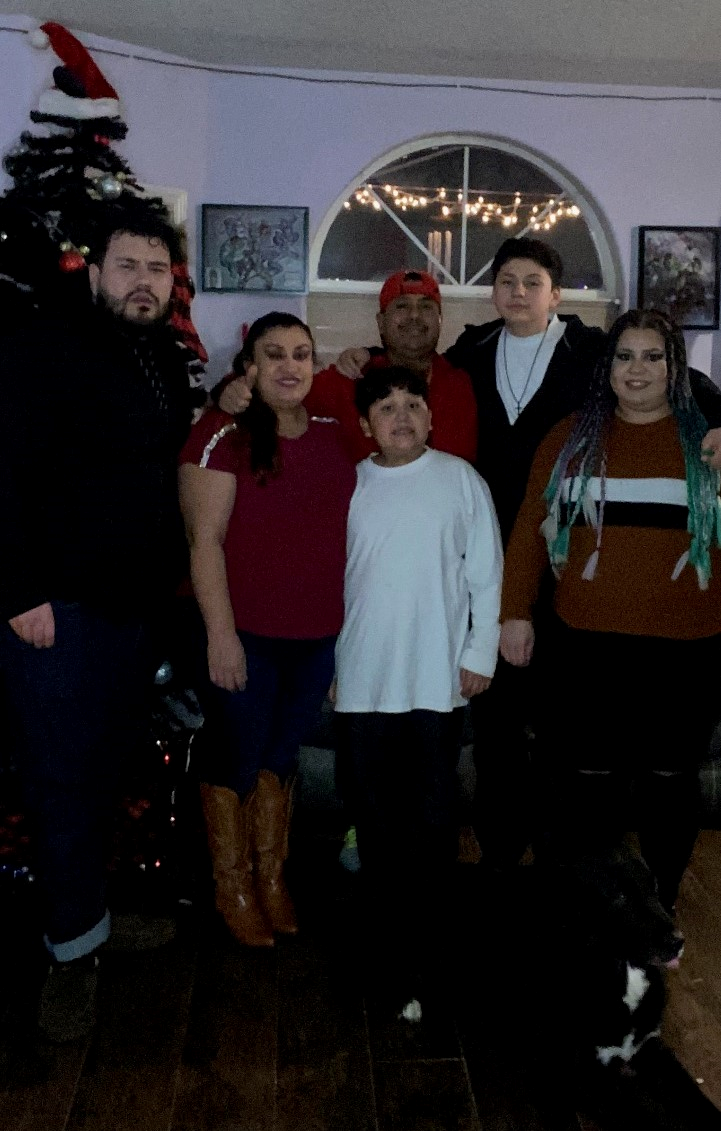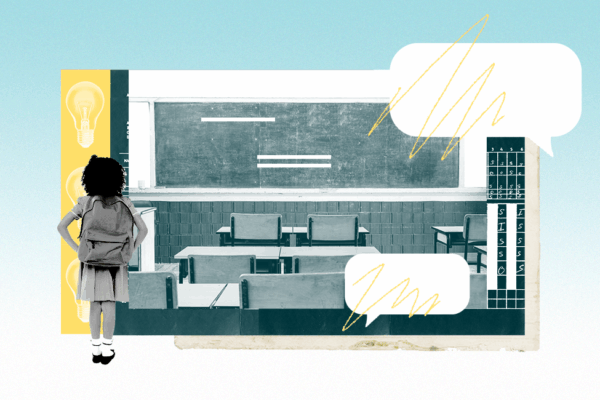Elizabeth

Elizabeth has four children. Her two youngest children currently attend elementary and high school in the Caldwell School District. A few years ago, Elizabeth and her family moved from California to Caldwell, Idaho, in part, because they wanted their children to grow up in a place safe from gang and criminal activity.
Elizabeth and her husband are from Mexico and their family continues to value their Mexican culture, traditions, and identity. But as Elizabeth shared, her children have faced racism and discrimination because of stereotypes associating their race, ethnicity, and religion with gangs.
Despite receiving this treatment and the limited language access in her children’s schools, Elizabeth continues to be a constant advocate for her children.
Has your child ever faced discrimination in school in Caldwell?
I have always given my children rosaries to wear, based on my beliefs and my culture, and because I am Catholic. I have always liked them wearing their bracelets for protection and their rosary for protection.
[My son] did not tell me right away, but [sometime in 2019] he told me that his teacher [in Syringa Middle School] had taken away his rosary. He came to me and said, I don’t know if this is right or wrong, but my teacher took away my rosary. When I asked him why he hadn’t told me before, he said he thought this had been a normal rule, so the teacher took away his rosary, he gave it to him, and the teacher did not return the rosary until after school. By the end of the year, my son no longer used his rosary around his neck, he just carried it in his pocket. But the school never provided me with an explanation why they removed his rosary.
I felt powerless. At that very moment, we were using our rosaries with even more faith because I was undergoing a difficult medical process. As a Catholic, I take my rosary with a lot of faith, I pray in my home, I ask God that my Cancer does not come back as aggressive. And the rosary united us as a family, we carried it because of our faith.
Even my younger son who is in Lewis and Clark elementary started carrying his rosary in his pocket, too. He was afraid that his teacher would tell him to remove it, too, and that he would be embarrassed to have it removed.
Has your child ever faced other experiences where they were treated differently in school in Caldwell?
My child suffers from asthma and during COVID, he also got sick with appendicitis. Suddenly, he was facing various medical issues and the school started to call me because he was missing too many classes when he was home sick. But I told them that I had been sending them notes about what was happening. And the school wanted me to send him in like this. So, I went to talk directly with the principal, but they would not let me talk to him because he did not know Spanish. But I said I would not leave, even if they did not have an interpreter, and that I would defend myself with the little English I was able to speak.
Even the school police officer was there when I arrived, and they told me they were preparing to go to my house because they thought I only wanted to have my son at home, and they wanted to say I was an indigent mother. But I had everything in order. I kept all my doctor and medical papers saying everything that was happening, and I told them I had been sending these to the school. And the school insisted that I had to send my child sick to school and that they could take him to the hospital if it was needed. But I refused to do this.
I had to advocate for my child and show them that he did not have bad customs; he had a good history, and that he would follow in the patterns I had set for my older children who went to university and graduated with honors.
How do you feel about Caldwell High School’s policies against Brown Pride clothing?
My son called me one day and told me he wanted to participate in a protest because another student was not being allowed to wear a shirt saying that she was proud to be Hispanic. The school never notified me why the students were facing this, I just received an automatic message that my son had not been in school that day. He was not allowed to return to class after the protest. The school also did not tell us why someone had graffitied the school the next day, either.
As a parent, this type of treatment makes me feel inferior because it is like they are making Latinos inferior to other races. I do not find this policy logical; it is violating students’ rights. If they are removing school colors and rosaries, and the majority of people who use rosaries are Catholic. But people have a right to their religion.
They are trying to implement a uniform now, to remove students’ habits of wearing Brown [pride] and rosaries, but what is going to happen? There are many other religions in the school, like Mennonite and Christian, but this is directed towards Mexican people because we use these symbols. As a parent, you feel powerless because the school does not tell us what is happening. We need to unite as parents, which I do not think we have done. Right now, students are the only ones involved, but we as parents have not organized with other parents to go to the school and talk to the administrators.
What changes would you like to see in schools in Caldwell?
I would like there to be translators available. Whenever I can, I try to help other parents, but it is not the same.
I would also like to see that schools are not focused on taking away [Latino] students’ customs, because they are not bad customs. In the time that I have been here, I have never received a student handbook with these policies, including any policies about the rosaries and Brown [pride]. It has all been verbal communication to the students only. And they have never told us anything as parents.
What would you like those who may have misconceptions about Latinos to know about your identity?
I am Mexican, we are Mexican, mom and dad. I was born in Tijuana, Baja California, and my husband in Irapuato, Guanajuato. We come from Mexican culture. But just because we are Mexican does not mean that our children are going to be gang members. I don’t want others to have that mentality in identifying someone, just because they wear lose clothes, as a gang member.
Don’t judge others by their race, or by what they wear. It is what I would like to show others, not just because we are Latino or indigenous, or any other race, or come from another country, should you be judging us as bad people. We came here to work, not to take away.
The Education Equity for Latinx Students project started in the fall of 2022 as part of our efforts to expand racial justice work on behalf of Idaho students, beginning with Latinx communities.
READ MORE STORIES AND LEARN ABOUT THE EDUCATION EQUITY FOR LATINX PROJECT


